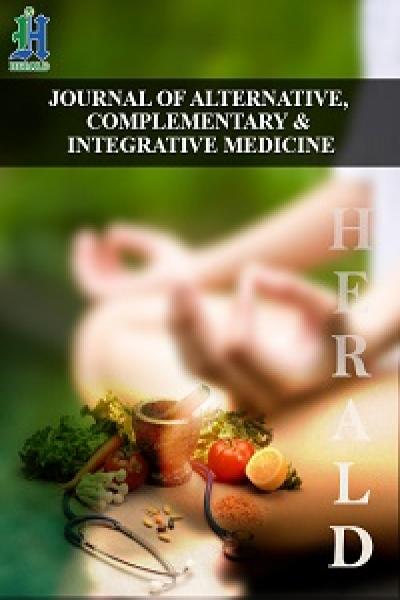
Effect of Traditional Chinese Medicine Five-Element Music on Improvement of Perioperative Sleep Status of Patients Undergoing Surgery under General Anesthesia
*Corresponding Author(s):
Xiaoyu WuKyoto Koka Women’s University, Japan
Email:s-u@mail.koka.ac.jp
Abstract
Background: Patients hospitalized for surgery often experience anxiety and insomnia, which affect their sleep status. Therefore, interventions other than drug administration for perioperative sleep disorders with a lower risk of complications are required.
Purpose: This study aimed to elucidate the effect of traditional Chinese medicine five-element music on improving the perioperative sleep status of patients undergoing surgery under general anesthesia.
Methods: This quasi-experimental study included patients undergoing minimally invasive surgery under general anesthesia. The patients were divided into intervention and control groups. Sleep status was assessed from 3 days before surgery to 3 days after surgery using a wearable sleep test device (PS-500, ESPON) and compared between the two groups. Furthermore, the intervention group was asked to freely describe the effects of the five-element music therapy 3 days after surgery.
Results: A total of 56 patients were included in this study (31 in the intervention group and 25 in the control group). The deep sleep duration measured using PS-500 significantly decreased after the surgery in both groups. The intervention group showed a significant increase in the total sleep time and deep sleep duration 2 days before surgery. The light sleep duration increased in the intervention group 2 days after surgery. Free-form analysis revealed a notable self-awareness of improved sleep in the intervention group.
Conclusion: Factors such as surgery might have affected the rhythm of postoperative sleep. Five-element music therapy improved perioperative sleep and maintained mental health.
Keywords
General anesthesia; Perioperative sleep disturbance; Quasi-experimental study; Traditional Chinese medicine five-element music
Introduction
Patients hospitalized for surgery often experience anxiety and insomnia due to disease progression, fear of surgery, and changes in the environment. Onishi et al., [1] surveyed 51 surgical patients regarding their sleep status and reported that 14 of the 51 patients complained of insomnia from the time of admission to the day before surgery, with 4 of these patients taking sleeping pills. On the day before surgery, 48 patients were administered sleeping pills as premedication, but 6 complained of insomnia, and 1 required an additional dose of sleeping pills. Sleep status can be influenced by psychological, physical, and environmental factors. Preoperative anxiety, a natural emotion that arises when facing an imminent crisis, is thought to have a significant impact on preoperative sleep due to psychological factors. Yamazaki et al., [2] reported an increase in the administration of sleeping pills and antianxiety drugs to patients with preoperative insomnia. Drug administration may be accompanied by an increased risk of drug complications, risks of falls and drops, lingering drug effects on the day of surgery, and unstable vital signs, thus impacting the induction of anesthesia. Therefore, interventions other than drug administration for perioperative sleep disorders with a lower risk of complications are required.
In Traditional Chinese Medicine (TCM), humans are holistically evaluated, emphasizing the connections between various organs within the body and their relationship with the external world (nature). Emotional fluctuations are not merely chemical signals in the brain but are categorized into five emotions: anger, joy, contemplation, sorrow, and fear. These emotions correlate with the functions of the five viscera (liver, heart, spleen, lungs, and kidney). Musical notes in the external world are also divided into five notes or five strings: Jue (Mi), Zhi (So), Gong (Do), Shang (Re), and Yu (La). It is believed that correspondence exists between the five emotions, five viscera, and five notes. The liver primarily governs anger and corresponds with the Jue note. The heart governs joy, including the feelings of happiness, sadness, excitement, tension, and anxiety, and corresponds with the Zhi note. The spleen governs contemplation, including appetite, pondering, and worry, and corresponds with the Gong note. The lungs govern sorrow, including gloom and depression, and correspond with the Shang note. The kidneys govern fear, including surprise and terror, and correspond with the Yu note. Therefore, music based on the Zhi note nourishes the heart and alleviates feelings of "joy," which encompasses tension, anxiety, and sadness. The Yu note nourishes the kidneys and feelings of fear [3].
Five-element music is based on five notes. Listening to each note is believed to nourish the corresponding organ in the body. A systematic review of five-element music showed that listening to music improved sleep in patients with a weak heart and spleen suffering from sleep disorders [4]. Furthermore, 93.3% of patients with sleep disorders who listened to the Zhi and Gong notes of the five-element music reported improved sleep. Additionally, Wang [5] determined that, through measurements such as brainwaves, skin electrical resistance, and body surface temperature, the Zhi note of five-element music could improve sad moods, and the Yu note could alleviate feelings of fear. This suggests that one can regulate particular psychological emotions by selecting specific musical notes.
In this study, patients exhibited emotions of "joy" (related to tension and anxiety about surgical outcomes) and "fear" (concerning the surgery or postoperative pain and potential complications) preoperatively. These emotions are believed to be psychological factors contributing to sleep disturbances during the perioperative period. Using the Zhi and Yu notes from TCM five-element music as an intervention is suggested to alleviate these negative emotions and improve sleep disturbances in perioperative patients.
However, few studies have objectively analyzed the sleep disorders of perioperative patients, with most research reporting on subjective observations. Thus, in this study, in addition to a subjective survey of sleep disorders, the wristwatch-style sleep measuring device "Epson PS-500" (hereafter referred to as "PS-500") was used to objectively observe "light sleep duration (rapid eye movement sleep)," "deep sleep duration (non-rapid eye movement sleep)," "total sleep time," "sleep latency (sleep onset latency time)," and "intermittent time (awakening time during the night)".
This study aimed to clarify the effect of TCM five-element music on the perioperative sleep status of patients undergoing surgery under general anesthesia. We hypothesized that interventions using TCM five-element music can improve sleep disorders in perioperative patients. Resolving sleep disorders in perioperative patients is believed to lead to postoperative recovery and improved quality of life.
Materials And Methods
- Design
This was a quasi-experimental study conducted from June 2019 to July 2019.
- Sample and setting
Patients who were admitted to F Hospital in S City, China, and underwent minimally invasive surgery (thoracoscopic and laparoscopic surgery) under general anesthesia were enrolled in this study. Those who agreed to participate in the research were included in this study. The sample size was calculated following the calculation method of Ishii et al., [6] and was set between 40 and 60 participants. No difference in the distribution of diseases was observed among the participants. According to mainland Chinese customs, all patients with cancer were not informed about their diagnosis.
- Intervention
Participants were recruited using the convenience sampling method [7]. They were assigned to the intervention and control groups based on their will. Figure 1 shows the procedures performed for each group of participants. Specifically, in addition to the usual nursing care, the intervention group listened to TCM five-element music in the Zhi and Yu notes for 30 min each at a volume of 15–30 decibels, adjusted to the mood of the participant, during waking hours (6:00–6:30) and bedtime (21:00–21:30) for a week from 3 days before surgery to 3 days after surgery. PS-500 was distributed to the participants by the researcher just before the listening time. Five-element music is not a type of music to induce sleep but is an intervention method to harmonize the five internal and six hollow organs. It needs to be performed regularly regardless of sleep time. Thus, five-element music was performed twice a day, in the morning and evening. The control group received only the usual nursing care. Both the intervention and control groups were hospitalized in general wards (4-person rooms), with room conditions standardized at a temperature of 18 °C–22 °C, humidity of 50%–60%, lights on at 06:30, and lights off at 22:00.
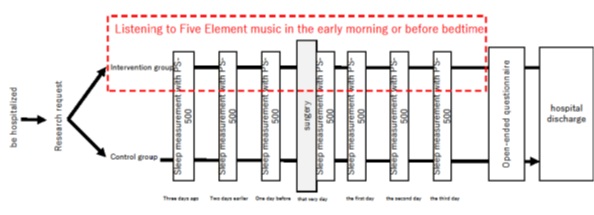 Figure 1: Listening to five Element music in the early morning of before bedtime.
Figure 1: Listening to five Element music in the early morning of before bedtime.
- Data collection
Data, including age, gender, diagnosis, surgical procedure, and duration of surgery, were collected.
- Instruments
PS-500: In addition to measuring activity levels using a three-axis acceleration sensor, PS-500 uses a proprietary sensor algorithm to measure pulse rates. Sleep duration and depth (divided into deep and light sleep) were calculated using PS-500. In this study, participants were instructed to wear PS-500 from the time they went to sleep (between 21:00 and 21:30) until they woke up.
Free statement: Participants in the intervention group were asked to provide their impressions of listening to TCM five-element music and their sleep 3 days after surgery.
Data analysis: The basic characteristics of the study participants were compared between groups using the χ2 and t-tests. Data from PS-500 were analyzed using IBM SPSS 23.0 with the Mann-Whitney U-test. Free-form descriptions were categorized by coding them into sleep-inducing effects and mood shifts.
- Ethical consideration
All participants were thoroughly informed, in writing and verbally, about the research purpose and methods, research benefits, anticipated burdens or risks and measures against them, free will to participate, protection of personal information, and publication of results. Data were analyzed after anonymization. This study was approved by the Research Ethics Committee of University and the collaborating hospital (approval number οοοο).
Results
- Basic attributes
A total of 56 patients were included in this study. Of the 56 patients, 31 were included in the intervention group and 25 in the control group. No significant differences in the basic characteristics were observed between both groups (Table 1).
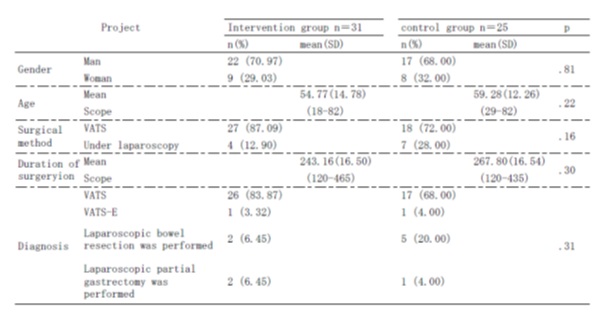 Table 1: Basic Attributes of the Research Collaborators.
Table 1: Basic Attributes of the Research Collaborators.
Sleep state was observed using PS-500 from 3 days before to 3 days after surgery. Daily "light sleep duration," "deep sleep duration," "total sleep time," "sleep onset latency time," and "intermittent waking duration" were compared between the two groups (Figure 2).
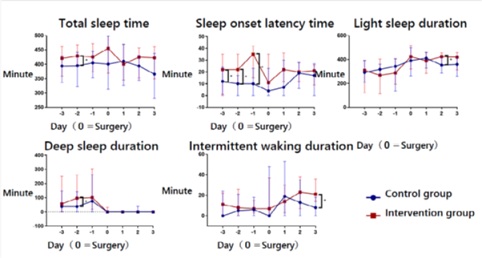
Figure 2: Daily "light sleep duration," "deep sleep duration," "total sleep time," "sleep onset latency time," and "intermittent waking duration" were compared between the two groups (n=56).
- Sleep state analysis
Before surgery, the intervention group showed significantly longer "sleep onset latency time" over the three days than the control group. However, the "total sleep time" tended to be longer on the third day before surgery in the intervention group than in the control group (P = 0.08). Moreover, on the second day before surgery, the "deep sleep duration" and "total sleep time" significantly increased in the intervention group compared with the control group.
After surgery, "deep sleep" was not observed in either group. The "light sleep duration" in the intervention group increased on the second day after surgery, and the "intermittent time" in the intervention group significantly shortened on the third day after surgery.
- Free statement
The participants in the intervention group were asked about their impressions and opinions on listening to the TCM five-element music on the third day after surgery (at the end of the study). Responses were received from 10 participants (Table 2). All responses acknowledged an improvement in sleep quality. Specifically, comments such as "I fell asleep while listening," "I fell asleep without realizing," and "It's effective for falling asleep" can be categorized under the theme of "Effective for initiating sleep." Comments such as "The quality of sleep is good," "There's an improvement in sleep quality," "Sleep becomes better," "Can sleep well," "It's very effective," and "Sleeps deeply" can be categorized under the theme of "Able to sleep well."
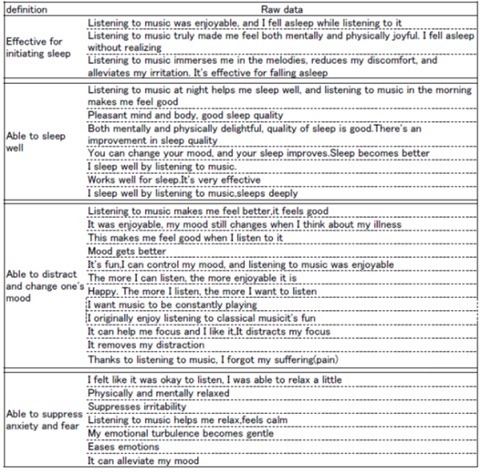 Table 2: Impact on Sleep and Emotion Due to Listening to Music n=10.
Table 2: Impact on Sleep and Emotion Due to Listening to Music n=10.
Additionally, comments such as "It feels good," "It was enjoyable," "Feels good," "Mood gets better," "It's fun," "I want to listen," "I want the music to flow," "I like it," "It distracts my focus," "It removes my distraction," and "Forgets the pain" can be categorized under the theme of "Able to distract and change one's mood." Comments such as "I was able to relax," "Physically and mentally relaxed," "Suppresses irritability," "Feels calm," "Becomes gentle," "Eases emotions," and "Can alleviate mood" can be categorized under the theme of "Able to suppress anxiety and fear."
Discussion
- Effect of five-element music
Growth Hormone (GH) secreted during sleep promotes protein synthesis and is involved in the repair of damaged tissue. According to modern medicine, the secretion of stress hormones such as Adrenocorticotropic Hormone (ACTH) and Cortisol (CS) decreases during sleep, and a large amount of GH, which controls the growth and repair of the body, is recognized. Thus, excessive stress can be prevented from affecting the body and immune function [8]. Inoue et al., [9] showed a sharp rise in chromogranin A and cortisol after surgery due to stress and pain. Sufficient sleep during the perioperative period is essential to reduce such physical stress and to obtain mental and physical recovery. However, 80% of the patients who are hospitalized have sleep disorder due to "pain of disease", "worry about disease", "social environment", "anxiety", "hospitalization environment", "treatment at night", "night patrol", etc. [10]. In this study, we examined the effects of pentagonal music on sleep improvement in perioperative patients. Consequently, we were able to improve sleep time and quality before and after surgery.
- Preoperative sleep patterns
Sleep status was analyzed using PS-500 and compared between the two groups. On the day before surgery, the intervention group showed longer "deep sleep duration" and "total sleep time" than the control group. This indicates that both the quantity and quality of sleep improved. The "Yu note" has been suggested to correspond with the kidney in the five viscera and can nourish the yin, conserve the essence (also storing the essence for reproduction), regulate water metabolism, distribute water throughout the body, and promote excretion [11]. Additionally, it is related to bone growth and can improve sleep disorders, fatigue, and concentration. Furthermore, Zeng [12] stated that, among the five emotions, the sleep state of "joy" is the best, and the sleep state of "fear" is the worst. Listening to TCM five-element music significantly improved sleep conditions. In this study, the sleep status before surgery was improved using the "sign note" and "feather note" from the five notes corresponding with "joy" and "fear" in the TCM five-element music through the yin-yang balancing mechanism.
The five-element music is not sleep-inducing music but is something to be listened to regularly in the morning and evening to nourish the five organs, gradually improving the corresponding emotions. The effect on the second day of listening (the day before surgery) was more significant than that on the first day (three days before surgery). However, the tension toward the next day's surgery drastically increased on the day before surgery, causing intense emotional fluctuations. It is believed that this may have masked the effects of the five-element music.
Before surgery, the "time to fall asleep" was significantly longer in the intervention group than that in the control group. Since the five-element music is not sleep-inducing music, the time to fall asleep increased in the intervention group compared with the control group due to the stimulation from the music before sleep. However, the duration of deep sleep gradually increased. Additionally, the results of the open-ended questionnaire showed responses such as "I felt better" and "It calmed my emotions." This reflects not only sleep improvement but also emotional enhancement and mental tranquility obtained through the five-element music.
- Effect of five-element music on postoperative sleep patterns
Interestingly, the duration of deep sleep after surgery drastically decreased in both groups. This may be due to trauma from surgery, general anesthesia, and postoperative pain and stress. Tabuchi and Kozakabashi [13] highlighted from actigraphy data that postoperative sleep and wake activity were not clearly differentiated like preoperative periods, indicating a disruption in the sleep-wake rhythm. Furthermore, Xue et al., [14] noted that factors such as nighttime toilet visits, temperature differences at night, pain from the surgical site, surrounding noise, physical discomfort, and mood disturbances contributed to poorer sleep conditions after surgery than before surgery.
Although deep sleep duration decreased in both groups after surgery, the light sleep duration was significantly longer in the intervention group from the second postoperative day. This finding suggested that the intervention group was shielded from factors that disrupted postoperative sleep due to listening to music. Cheng et al., [15] reported that TCM five-element music suppressed the secretion of 5-HT and noradrenaline in the hypothalamus of anxious model rats, suggesting that the five-element music has potential antidepressant effects, alleviating symptoms such as depression. Such antidepressant effects of the five-element music can be considered one of the mechanisms that improved postoperative sleep conditions in this study.
- Comparison of subjective and objective data
In this study, the analysis of the sleep status by PS-500 showed that both groups experienced a disturbance in their sleep rhythm (a significant decrease in deep sleep duration) after the surgery. However, in the open-ended questionnaire, no comments were made on the deterioration of postoperative sleep conditions. Thus, a discrepancy exists between subjective and objective evaluations in the analysis of sleep conditions. The subjective evaluation could not detect a decrease in deep sleep duration.
Therefore, sleep quality should be evaluated using subjective and objective data [13,16,17]. Sleep quality before surgery can be maintained at a certain level [13]. However, a discrepancy between physiological indicators and subjective evaluations is likely to occur from immediately after surgery up to three days, suggesting that special nursing interventions are required.
Furthermore, Morgan and Closs [16] showed that interviews and questionnaires only evaluate subjective sleep quality and that an objective evaluation requires sleep polysomnography. Nakayama et al., [18] suggested that more accurate determinations can be made by combining algorithms tailored to characteristics such as age. In the future, perioperative sleep research should be conducted using actigraphy and polysomnography to objectively evaluate sleep quality.
- Implications for future nursing practice
In hospitalized patients undergoing surgery, sleep rhythms are often disrupted due to factors such as surgical invasiveness, lingering effects of anesthesia, and changes in the hospital environment. Decreased "deep sleep duration" and disturbances in day-night activity patterns can adversely impact postoperative recovery. Therefore, ensuring good sleep is necessary for promoting postoperative mobilization and rehabilitation. Moreover, methods that entail minimal effort, cost, and invasiveness are desirable for postoperative patients who are physically and mentally weakened. Listening to five-element music can stabilize the emotions of perioperative patients and improve their sleep. This approach, which imposes a minimal burden on patients, can be beneficially incorporated into future nursing practice.
- Limitations and future challenges
This study included participants capable of executing the research procedures. Recently, the duration of hospital stays has become shorter, making it difficult to meet the condition of being admitted three days before surgery. Thus, allocating participants randomly into the intervention and control groups was challenging. Therefore, the study was conducted as a quasi-experimental study. Further randomized controlled trials using random sampling are needed to understand the effects of TCM five-element music.
Conclusion
This study was conducted to clarify the effects of TCM five-element music on improving the sleep status of patients undergoing general anesthesia surgery and its impact on postoperative recovery. Both groups showed a significant decrease in "deep sleep duration" after surgery. However, the intervention group showed a significant increase in the "light sleep duration" after surgery compared with the control group. Although postoperative sleep was disturbed due to factors such as surgery, listening to TCM five-element music partially improved sleep. The open-ended descriptions of the study participants who listened to the five-element music indicated that listening to the music had a positive effect on sleep onset and quality. Listening to TCM five-element music contributed to improving perioperative sleep status, even from a subjective evaluation standpoint.
Declaration of Interest
The authors declare no conflicts of interest
Acknowledgment
The authors would like to thank the research subjects and their families and the staff of F hospital in S city, China, for who cooperated in this research.
Funding
This research is supported in part by a budget of Kyoto Koka Women’s University for scientific researches.
Data Availability Statement
The datasets generated during and/or analyzed during the current study are available from the corresponding author on reasonable request.
References
- Onishi C, Sato L, Inoue I (1991) A study on sleep disorders in surgical patients – On sleep status and inhibitory factors of surgical patients. Journal of Japanese Nursing Science 11: 3-39.
- Yamazaki Y, Enzan K, Akiyama H, Iwasaki Y, Yamashiro T, et al. (1992) Effect of zopiclone as a preoperative night hypnotic. Journal of Japan Society for Clinical Anesthesia 12: 393-397.
- Wu XY (2020) Natural life theory of traditional Chinese medicine nursing – Application to modern nursing. Japan Nursing Association Publishing, Co, Japan.
- Cao B (2016) Research progress on the application of five elements music in disease treatment, Chinese convalescence medicine25: 801-803.
- Wang JF (2009) Research on the soothing effects of Yu harmonization and Zhi toning on fear and sad emotions.
- Ishii K, Tao K (1999) Questionnaire survey and data analysis for nurses. Medical Book Publishing, Co, Japan.
- Polit DF, Hungler BP (1978) Kondo Junko (2018): Principles and methods of nursing research. Medical Book Publishing Co, Japan.
- Takahashi K, Hongo T, Fujimura S (2002) Establishment of sleep science and proposal for research promotion.
- Inoue M, Tanaka M, Ikeda M (2016) Relationship between salivary stress biomarkers and pain in cardiac surgery patients, Kochi Women’s University. Nursing Journal42: 55-66.
- Pang YL (2018) Survey and nursing of sleep quality and influencing factors of medical inpatients. wisdom health 2: 130-131.
- Meng X (2016). Study on the effect of TCM five elements music intervention on sleep quality and psychology of maintenance hemodialysis patients.
- Zeng JQ (2015) Influence of personalized five elements music therapy on the perioperative psychological stress response of laparoscopic cholecystectomy patients.
- Tabuchi S, Kozakabashi K (2006) A study on the sleep pattern of surgical patients before and after surgery – Evaluation by actigram and OSA sleep survey table (MA version). Journal of Japanese Society for Medical Technology 5: 58-68.
- Xue XC, Wang X, Hao LX (2010) Sleep quality study of cholecystectomy patients, medical. Information 23: 109-111.
- Cheng HY, Xiong HZ, Zhu JX (2015) Study on the effect of TCM five elements music on behavior and brain 5-HT and NE in depressed model mice. Chinese Journal of Rehabilitation Medicine 30: 714.
- Morgan K, Closs SJ (1999) Kawakami Katsu (2003): Sleep management in nursing practice (1). Buren Publishing, USA.
- Tanida K, Kimura Y (2009) Current status and issues of sleep evaluation methods in nursing Research. Hyogo Prefecture university regional care development research memoir 16: 23-38.
- Nakayama E, Kobayash H, Yamamoto N (2006) Basic study on sleep/wake judgment by actigraph, Ishikawa. Nursing Journal 3: 3-37.
Citation: Jia Y, Wu X, Nishigami A, Hosokawa M (2024) Effect of Traditional Chinese Medicine Five-Element Music on Improvement of Perioperative Sleep Status of Patients Undergoing Surgery under General Anesthesia. J Altern Complement Integr Med 10: 441.
Copyright: © 2024 Yuting Jia, et al. This is an open-access article distributed under the terms of the Creative Commons Attribution License, which permits unrestricted use, distribution, and reproduction in any medium, provided the original author and source are credited.

